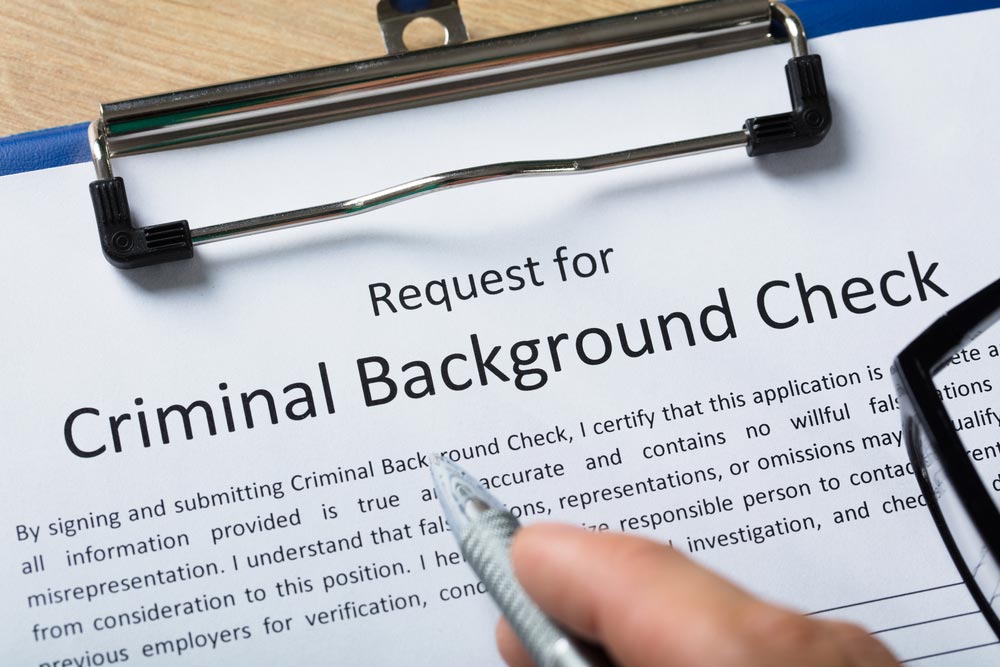You can feel the consequences of a criminal record long after your legal troubles are over. It can affect your ability to find employment and housing — all while affecting other parts of your life. So unless it has been sealed or expunged, you will face these consequences for the rest of your life. A criminal record is a comprehensive historical document that’s maintained by the state or federal government. It has detailed information about criminal law violations, arrests, and convictions (which are listed in chronological order).

How Long Does a Criminal Record Last in Texas?
Criminal information will stay on your record forever, and it can be accessed by anyone with the proper authorization. Some states offer a process that’s referred to as “expungement,” which may involve sealing or erasing records. This process can involve removing them from the state database and destroying any physical copies. There is no federal equivalent to record expungement, so the only recourse you can have for these types of crimes is to get a presidential pardon.
In Texas, someone who has completed a deferred adjudication community supervision can petition the court that put that person on probation for an order of nondisclosure for any records related to the crime. This procedure is listed under Texas Government Code §411.071. An order of nondisclosure prohibits criminal justice agencies from disclosing any criminal records related to a specific offense. This is different from an expungement, because the records don’t “go away.” It’s simply kept from being accessed by the public.
How Long Do Arrests Stay on Your Record in Texas?
Arrests will stay on your record until they have been expunged. You can ask for an order of nondisclosure, but only in certain circumstances. It won’t erase the arrest from your record because law enforcement agencies can still access it, but it does keep it from being accessed by the public. A qualified attorney will be able to guide you through the nondisclosure process.
How Long Do Convictions Stay on Your Criminal Record?
Convictions can stay on your criminal record until they’re expunged. You can ask the courts to issue an order of nondisclosure. But like arrest records, it can only be done in certain circumstances. It won’t completely erase the conviction from your record because law enforcement agencies can still access it, but it does keep it from being accessed by the public. Be sure to speak to an attorney for more details about the nondisclosure process.
How Long Do Juvenile Criminal Records Last in Texas?
In Texas, juvenile criminal records aren’t automatically confidential and don’t become sealed until that person is 18 years old. Unsealed records can be accessed by different parties, which can include the following:
- Law enforcement agencies.
- Probation officers.
- Juvenile justice officers.
- Potential employers.
- Educational institutions.
According to Family Code §58.25, Texas gives you the option to seal some convictions after a waiting period. A new “automatic sealing” process eliminates the need for applications or petitions and requires the juvenile court to seal them based on specific criteria. Another law allows certain juvenile criminal records to be expunged (such as minor alcohol violations that are handled in municipal or justice courts).
How Long Does a Misdemeanor Stay on Your Record in Texas?
While it isn’t as serious as a felony charge, a misdemeanor is still a criminal offense and will stay on your record unless it has been expunged. Except for a few offenses, there’s no predefined expiration date for the presence of a misdemeanor on your record. While they will legally stay on record for life, there may be some limitations with regard to background checks (such as the “seven-year rule”).
What are the Qualifications for Expungement in Texas?
If you have been arrested for a misdemeanor or felony, your criminal record may qualify for Texas expungement in the following circumstances:
- You were acquitted of the crime for which you were charged.
- You were convicted but were later found to be innocent.
- You were convicted but were pardoned by the governor or president.
- You were formally charged by indictment or information, the case against you was later dismissed, and the statute of limitations has expired.
- You were arrested but not formally charged, and you have satisfied a proscribed waiting period.
If you would like more information about expungement in Texas and are looking for a criminal defense attorney in Corpus Christi to help you, be sure to reach out to Gale Law Group.
